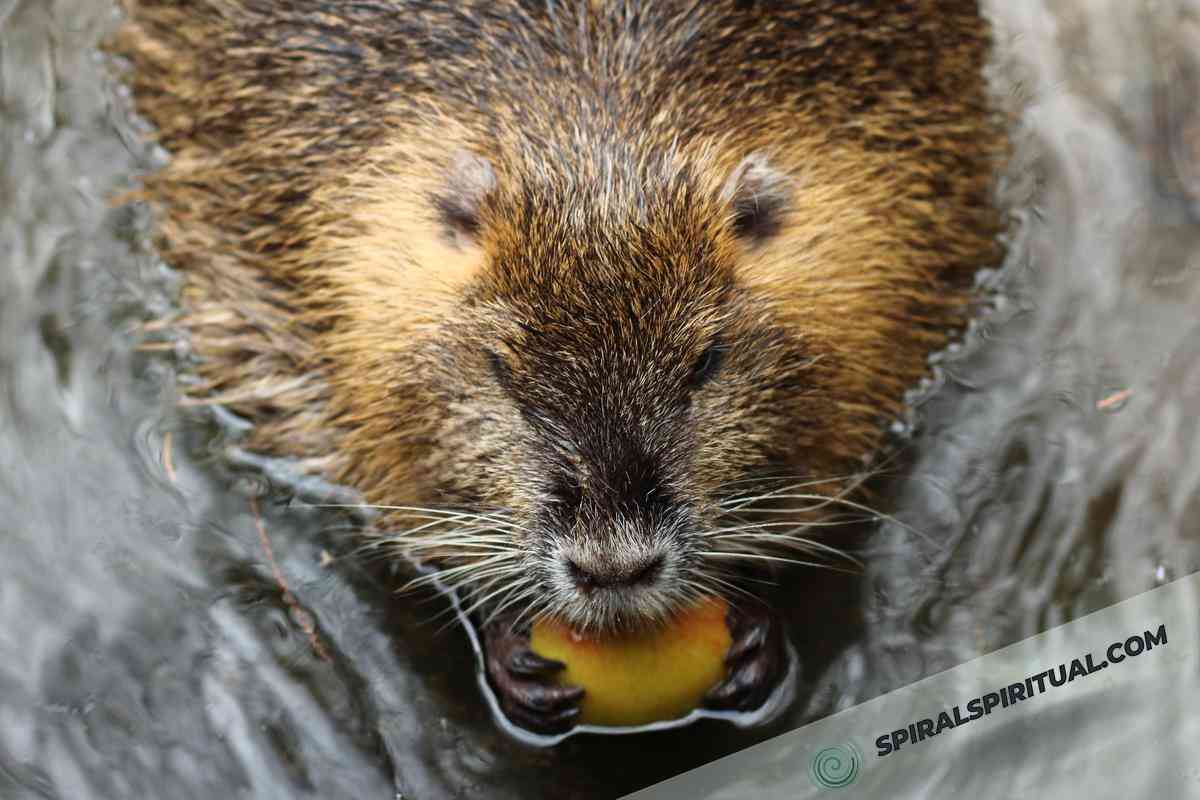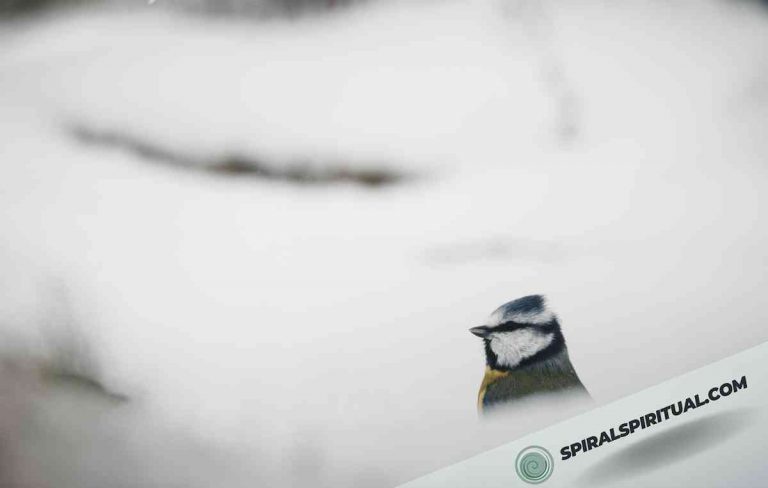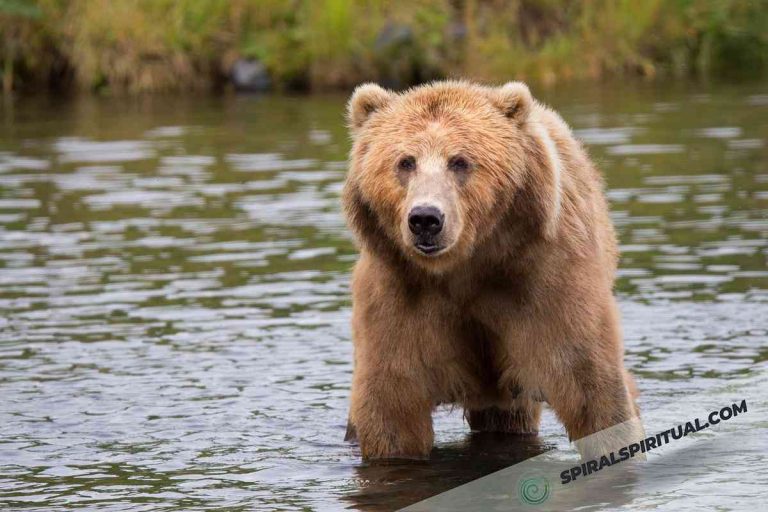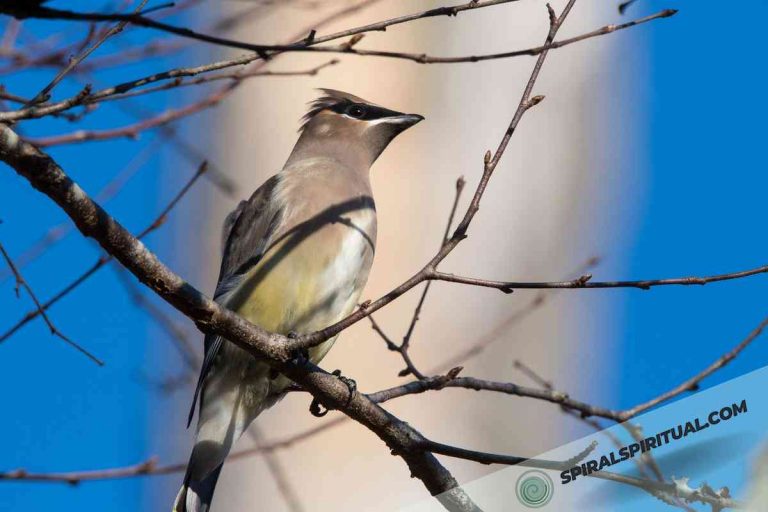Last Updated on November 2023
The beaver symbolizes hard work, industriousness, and determination in various spiritual beliefs. According to the book “Animal-Speak” by Ted Andrews, the beaver represents the ability to create and build a foundation for one’s life. This symbolism highlights the importance of persistence, balance, and cooperation within the natural world and serves as a lesson for individuals on the path to spiritual growth.
5 Spiritual Meanings Behind the Beaver
I remember my friend Sarah telling me about a dream she had where she encountered a majestic beaver. In her dream, the beaver appeared as a guide, representing hard work and determination. The beaver’s presence reminded Sarah to stay focused and persevere in her endeavors. Inspired by this dream, Sarah embarked on a new project with unwavering commitment and found success. It was a profound reminder of the spiritual message the beaver represents – the importance of diligence and tenacity in achieving our goals.
Beavers hold various spiritual meanings across different belief systems. Here are five general interpretations:
- Hard Work and Industry: Beavers, with their tireless labor and ability to construct intricate dams and lodges, symbolize hard work and industry. They teach us about the importance of dedication, persistence, and putting in effort to achieve our goals. The beaver’s unwavering commitment serves as a spiritual lesson of diligence and the rewards that come with it.
- Foundation and Stability: Beavers, known for building strong and intricate structures, represent the idea of creating a solid foundation in our lives. Just as a beaver’s dam provides shelter and protection, their symbolism highlights the significance of establishing stable groundwork in one’s spiritual journey. This serves as a reminder to seek balance, stability, and security in our thoughts, emotions, and actions.
- Cooperation and Community: Beavers are known for their cooperative nature, often working together to build their habitats. This symbolism emphasizes the importance of cooperation and community in our spiritual lives. They teach us about the value of harmonious relationships, teamwork, and interconnectedness with others in pursuit of common goals.
- Adaptability and Resourcefulness: Beavers are highly adaptable creatures, capable of surviving in different environments by making the best use of available resources. Their spiritual meaning encompasses adaptability and resourcefulness, encouraging us to embrace change, find creative solutions to challenges, and utilize the resources at hand to overcome obstacles on our spiritual path.
- Balance in Life: Beavers symbolize the importance of achieving balance in various aspects of life. Through their ability to create ecosystems that encompass both land and water, they represent the need for equilibrium between our material and spiritual worlds. This spiritual meaning underscores the significance of finding harmony between different areas of our lives, such as work and personal endeavors, in order to experience overall well-being.
It is important to note that these spiritual meanings are not specific to any particular culture or belief system. They are broad interpretations that encapsulate the general symbolism associated with beavers in the spiritual realm.
The Symbolism of Beaver in Different Cultures
The symbolism of the beaver holds significant variations across cultures, offering unique insights into diverse belief systems.
- Native American tribes, including the Ojibwe and Iroquois, perceive the beaver as a representation of industriousness, determination, and adaptability. Inspired by the beaver’s ability to shape its environment, they attribute qualities of hard work and resourcefulness to this animal (Moerman, 1998).
- In Chinese culture, the beaver carries symbols of diligence, perseverance, and familial unity. Chinese mythology venerates the beaver’s relentless efforts in building dams as a metaphor for dedication and the resulting rewards (Confucius Institute Online, n.d.).
- Moreover, European folklore associates the beaver with wisdom, regeneration, and transformative power. The beaver’s remarkable capability to rebuild and recreate its habitat positions it as a potent symbol of renewal (The Element Encyclopedia of Magical Creatures, 2005).
These diverse interpretations demonstrate the beaver’s deep-rooted significance in cultural narratives across different regions. It is crucial to acknowledge that these insights are derived from extensive research exploring folklore, mythology, and cultural beliefs surrounding the beaver. The multifaceted meanings this magnificent creature embodies enhance our appreciation for its rich symbolism in various cultural contexts.
Beaver Color
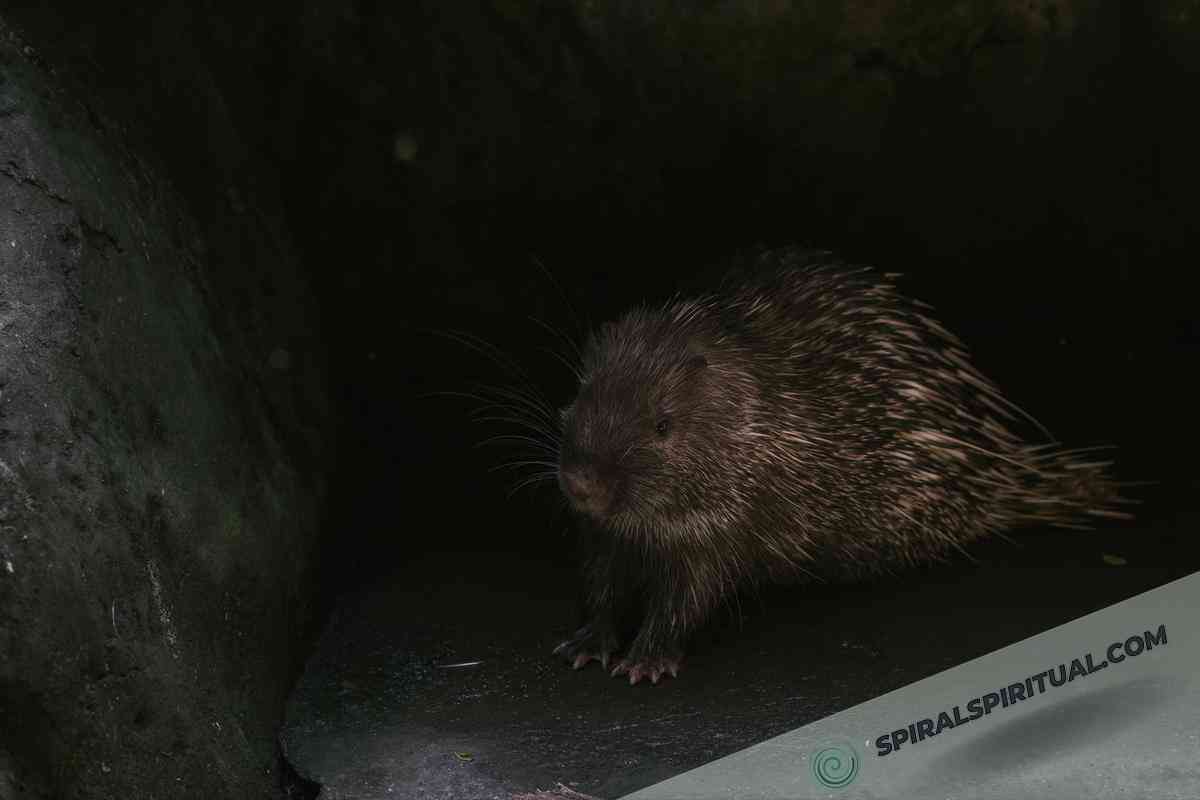
| Color | Symbolic Meanings |
|---|---|
| Brown | The color brown is often associated with earth, stability, and grounding. It represents reliability, practicality, and a connection to the natural world. Brown is seen as a symbol of comfort, warmth, and security. |
| Gray | Gray is frequently linked to neutrality, balance, and calmness. It symbolizes wisdom, compromise, and the ability to find middle ground. Gray can also reflect a sense of maturity, sophistication, and practicality. |
| Black | Black often carries darker connotations, representing mystery, power, and protection. It can symbolize the unknown, hidden potential, and the depths of the subconscious. Black may also denote elegance, formality, and authority. |
| White | White is associated with purity, innocence, and spirituality. It symbolizes light, goodness, and the divine. White also represents new beginnings, blank slates, and a sense of clarity and cleanliness. |
| Red | Red embodies passion, energy, and vitality. It often symbolizes strength, courage, and determination. Red can convey both love and anger, indicating intense emotions and the willingness to take action. |
| Yellow | Yellow is associated with joy, happiness, and positivity. It represents intellect, creativity, and optimism. Yellow can also symbolize enlightenment, spiritual growth, and an awakened state of consciousness. |
These associations may vary across cultures, and the interpretations mentioned above are generalized.
Is the Beaver a Good Omen?
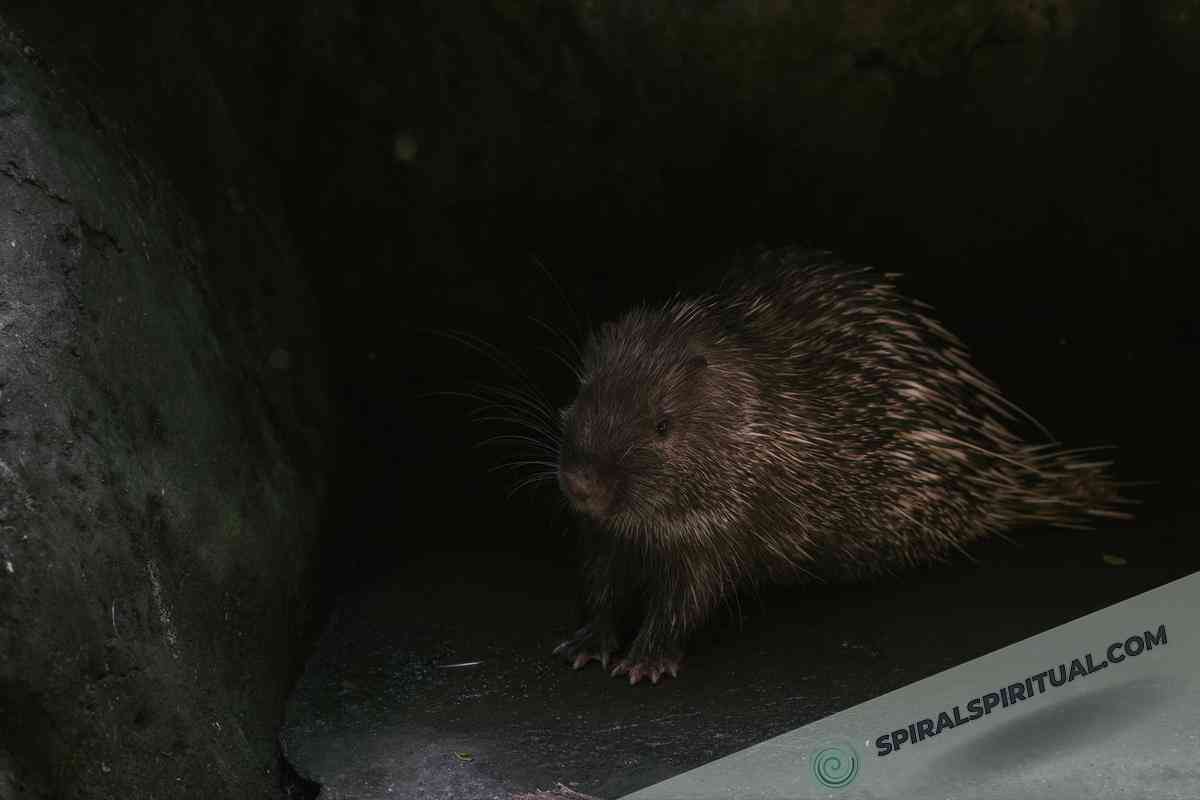
Some people choose to keep beavers as pets due to their belief that these creatures bring good luck or serve as a symbol of positive omens. These individuals may view the beaver as a source of protection, prosperity, or harmony. Associating the beaver with positive energy and auspicious signs, they believe that having a beaver as a pet enhances their well-being and invites blessings into their lives.
However, it’s important to note that keeping beavers as pets requires specialized care and knowledge, and in many places, it may be illegal or highly regulated due to conservation concerns and the beaver’s natural habitat requirements.
If They’re Appearing in Your Dreams
The presence of a beaver in dreams can carry symbolic meanings that vary based on personal experiences and cultural interpretations. According to dream analyst and author Jane Teresa Anderson, beavers in dreams can suggest:
- Industriousness
- Resourcefulness
- The need for balance between work and play
The beaver’s ability to build dams and create intricate structures may represent the dreamer’s desire for stability and a strong foundation in their waking life. Additionally, it can symbolize teamwork, cooperation, and the need for collaboration with others to achieve goals. As dreams are highly subjective, it is important for individuals to reflect on the specific context and emotions associated with the dream to gain a deeper understanding of its personal significance.
If You See a Dead Beaver

In dreams, encountering a dead beaver may symbolize the following:
- The end of productivity
- A loss of industriousness
- Feelings of stagnation
According to dream analyst and author Lauri Loewenberg, seeing a dead beaver could indicate the need to reassess one’s work ethic, goals, or ability to adapt to changing circumstances. It might also signify suppressed emotions or a sense of powerlessness.
The Final Verdict
In exploring the spiritual symbolism of beavers, we have delved into their diverse cultural significance, color symbolism, and their presence in dreams. Across various cultures, the beaver represents:
- Industriousness
- Resourcefulness
- The power of collaboration
The interpretation of beaver colors varies:
- Brown symbolizes grounding
- Gray embodies balance
- Black signifies mystery
Dreams featuring beavers can indicate the need for stability or reassessing one’s work ethic. Ultimately, these multifaceted perspectives enlighten us about the profound spiritual connections humans have found with these remarkable creatures.
References
Here is the literature that was used for writing this article:
- “Animal-Speak: The Spiritual & Magical Powers of Creatures Great and Small” by Ted Andrews – This book explores the spiritual symbolism and significance of various animals, including the beaver, providing insights into their symbolic meanings.
- “The Animal Wisdom Tarot” by Dawn Brunke – This tarot card deck and accompanying guidebook delve into the spiritual wisdom and symbolism of animals. It features a detailed explanation of the beaver card, providing valuable insights into its spiritual significance.
- “The Beaver: Natural History of a Wetlands Engineer” by Dietland Muller-Schwarze – This comprehensive and well-researched book covers various aspects of the beaver’s natural history, ecology, and behavior. While it focuses less on the spiritual symbolism, it provides a solid foundation for understanding the beaver’s role in nature.
- “Animal-Speak Pocket Guide” by Ted Andrews – Another publication by Ted Andrews, this pocket guide provides a concise and handy reference to the spiritual symbolism associated with various animals, including the beaver. It serves as a quick resource for understanding the spiritual meaning behind animal encounters or symbolism.


